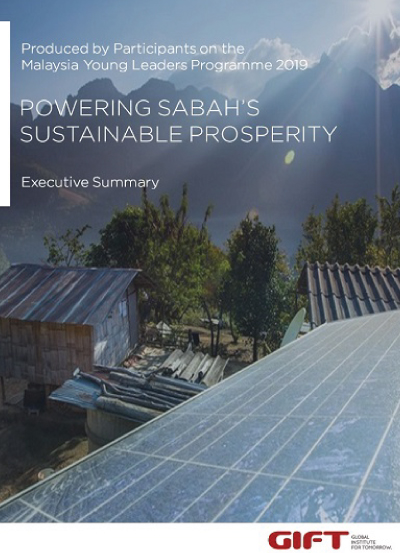Sabah, Malaysia’s second-largest state, is renowned for its natural resource wealth, cultural diversity, and status as one of the world’s 17 mega-diverse regions. Home to 3.9 million people across 42 ethnic groups, its economy spans mining, agriculture, and tourism. Yet, despite this wealth, many rural communities remain underserved. Up to 40% of Sabah’s population lives in remote villages beyond the national power grid, relying on wood fires, diesel generators, and kerosene lamps. This lack of electricity limits access to education, healthcare, communication, and economic opportunities.
Government programs like Bekalan Elektrik Luar Bandar (BELB) and non-profit initiatives such as Tonibung and Penampang Renewable Energy (PRE) have made strides in providing electricity to rural communities through renewable energy systems, diesel hybrids, and micro-hydro projects. However, progress toward full rural electrification is slow, hampered by challenging terrain, isolation, and limited funding.
This report, developed by participants of GIFT’s Malaysia Young Leaders Programme, proposes a holistic and sustainable development plan for rural Sabah. It focuses on improving socioeconomic outcomes by addressing multiple dimensions of underdevelopment, with an emphasis on electrification, accessibility, and capacity building. The plan is designed as a public-private partnership model, integrating government policy, private sector expertise, and community engagement.
Key elements of the Development Plan:
-
- Establishment of SinaRaff
- A Government-Linked Company (GLC) with a holistic mandate to develop rural communities.
- Focuses on renewable energy provision, road access, communications, and long-term initiatives in education and healthcare.
- Targets 200 villages within the first five years, impacting over 6,500 households and creating 1,500 jobs.
- Efficient Governance and Management
- SinaRaff will act as an interface between funding, policy, and implementation.
- Designed with a professional, transparent governance structure to ensure accountability and effective resource deployment.
- Sustainable Funding Mechanism – Yayasan Bayu
- A rural development foundation that manages an Endowment Fund to finance ongoing operations.
- Seeded with an initial government grant of MYR 250 million (USD 60 million) and sustained through a Rebate for Ecosystem Services (RESS) levy and private sector contributions.
- Ensures financial sustainability, with operating costs projected to be fully covered by investment returns from year seven onwards.
- Local SME Ecosystem Development
- Local small and medium enterprises will manufacture and install renewable energy systems, construct roads and telecom infrastructure, and provide education and healthcare services.
- Promotes local job creation and community participation, strengthening economic resilience in rural areas.
- Centre of Excellence (CoE)
- Focuses on knowledge transfer and capacity building for communities, SMEs, and civil society partners.
- Aims to equip villagers with the skills to operate and maintain new infrastructure and develop innovative, context-appropriate technologies.
- Establishment of SinaRaff


